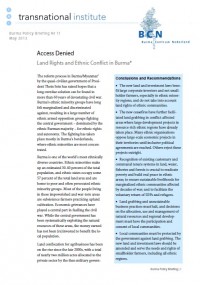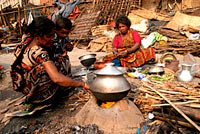The Landesa Center for Women’s Land Rights champions women’s secure access to land by providing resources and training that connects policymakers, researchers, and practitioners around the world. We pilot innovative solutions to secure women’s land rights and educate development experts about the gap between customary and institutional law. Our program goal is to build capacity to promote approaches that strengthen and secure women’s land rights.
Latest news
- France begins eviction of 650 migrants from Calais camps
- Anti-eviction group creates crowdsourcing map for stories of displacement
- More foreclosures, more middle-aged suicides, study finds
- When it comes to hosting the Olympics, more cities are saying, ‘Hold that thought.’
- European leaders urged to end plight of 600,000 stateless people
Latest from the collection
- Raquel Rolnik’s mandate ends. Leilani Farha is the new rapporteur. – Newsletter #47
- Roots and Branches
- New Materials on Security of Tenure in Several Languages – Newsletter #46
- Guide: Guiding principles on security of tenure for the urban poor
- Address acute housing crisis – Special rapporteur on adequate housing
Learn more


